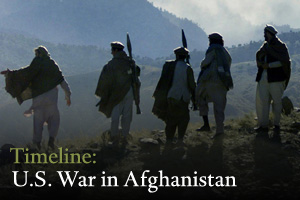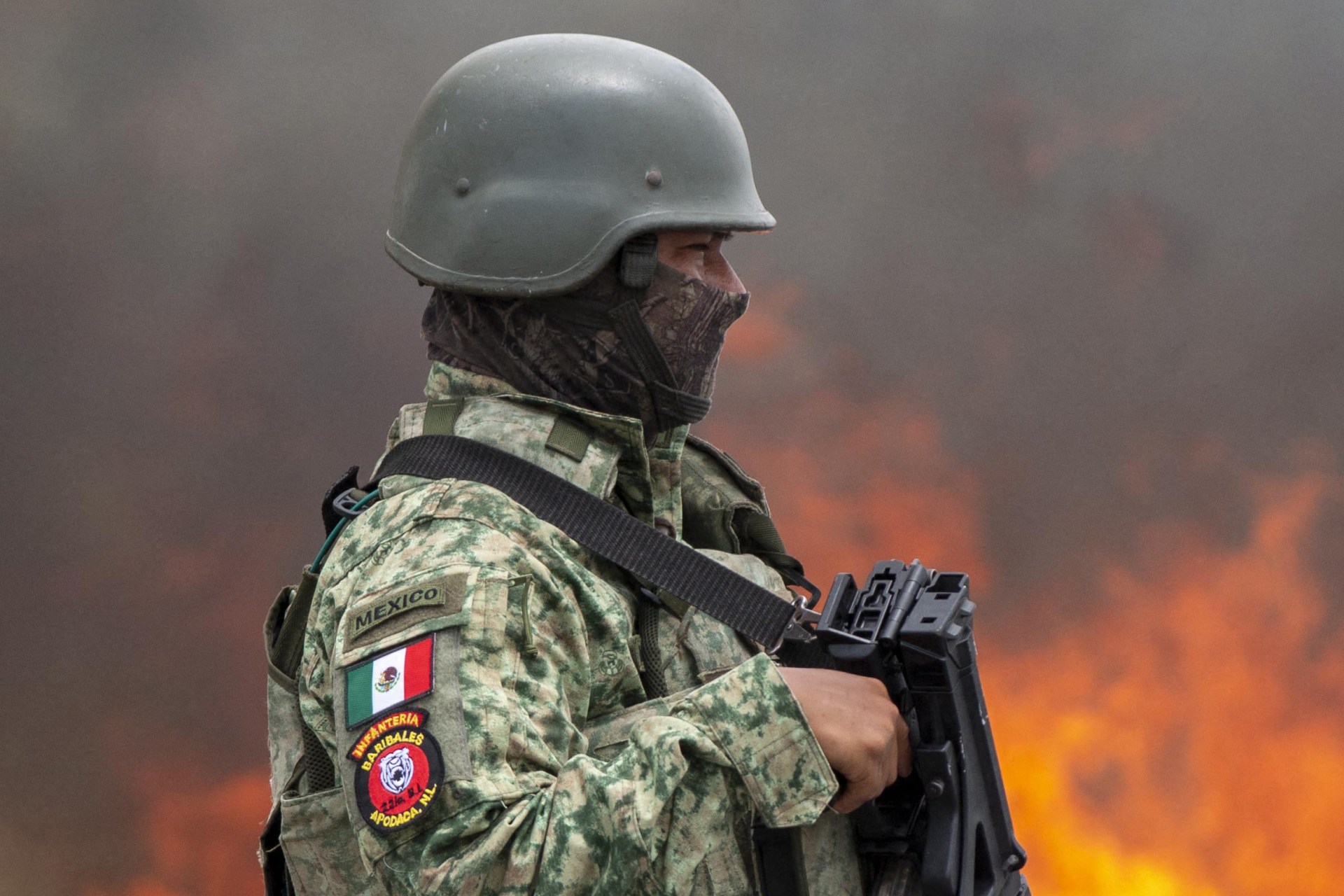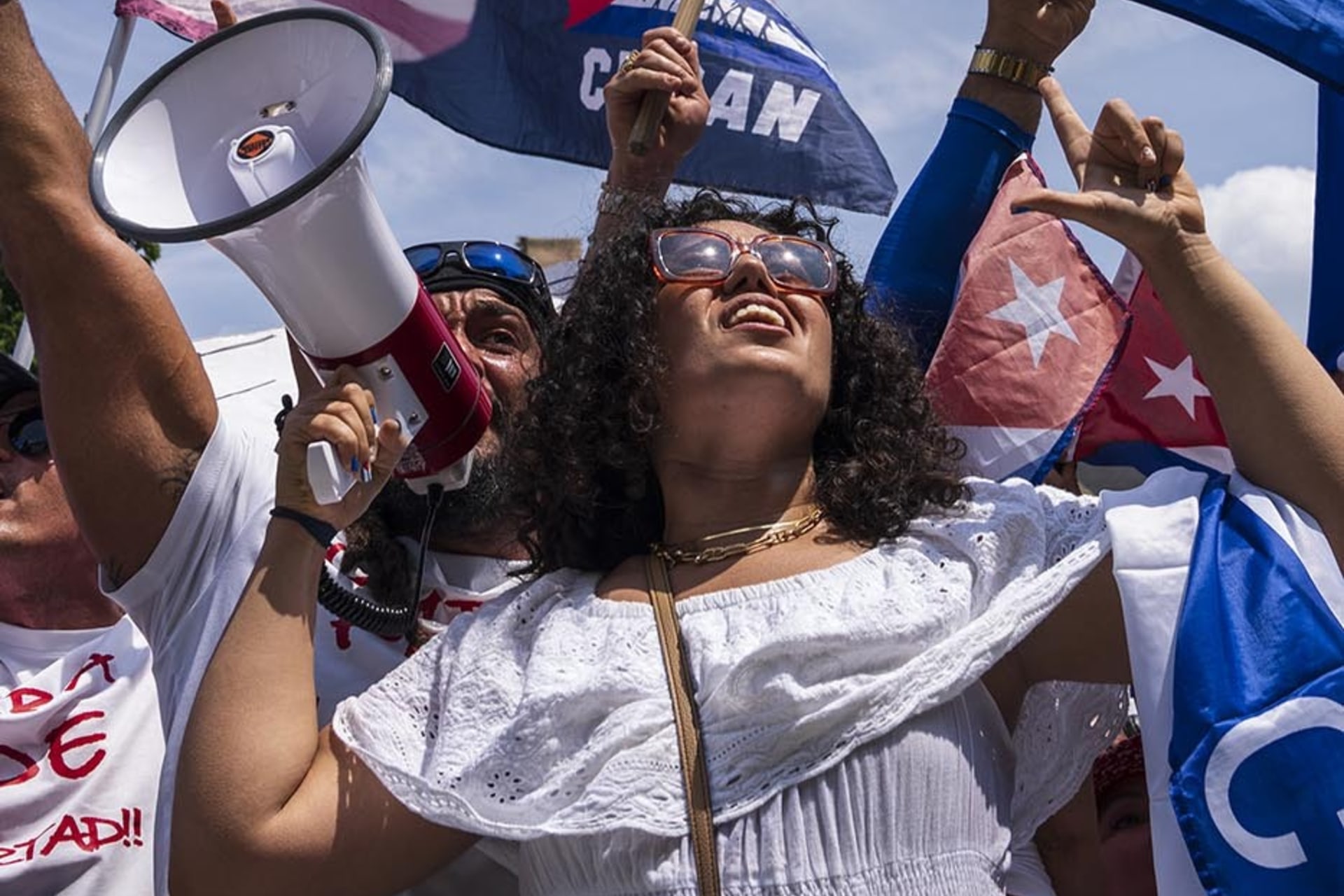Al-Qaeda’s Financial Pressures
Published
Financial pressures have weakened al-Qaeda’s tactical abilities, but analysts say affiliated networks are finding new ways to raise and spend money, complicating efforts to squeeze a savvy foe.
This publication is now archived.
Introduction
In addition to the ongoing military campaign against al-Qaeda, financial regulators are beefing up efforts to cut the terror group’s lines of funding. These efforts are showing signs of progress. In Europe, al-Qaeda recruits complain of being forced to pay for their own training and supplies; affiliate cells are recording video and audio messages to solicit cash from supporters; and senior al-Qaeda leaders are calling on donors to ramp up illicit contributions (MailOnline). In mid-2009, al-Qaeda’s commander of operations in Afghanistan, Mustafa Abu al-Yazid, complained of a shortage of food, weapons, and supplies (Reuters) brought about by a dearth of cash.
Analysts are split on whether global financial woes or a weakened brand are responsible for al-Qaeda’s declining reserves. And some analysts downplay the importance of any financial weakening of al-Qaeda. For one, terrorism is cheap: The London transit bombings on July 7, 2005, only cost about $15,000. As al-Qaeda increasingly connects to affiliates in Somalia, Yemen, and elsewhere, the wealth of al-Qaeda central may also be of less consequence. An increase in criminal activities like smuggling and drugs could easily turn around the group’s fortunes, analysts say.
Still, David S. Cohen, assistant secretary for terrorist financing at the U.S. Treasury Department, insists that targeted efforts to dampen al-Qaeda’s finances are working. “We assess that al-Qaeda is in its weakest financial condition in several years,” Cohen said in October 2009. “As a result, its influence is waning.”
Historic Sources of Support
Despite lucrative business interests and a wealthy Saudi family, Osama bin Laden is not believed to have personally financed the creation of al-Qaeda. According to the 9/11 Commission report, by the time bin Laden arrived in Afghanistan in the mid-1990s, he had been squeezed of his potential inheritance in Saudi Arabia and stripped of personal assets from Sudan. But with support and refuge provided by the Taliban, bin Laden resurrected fundraising networks that drew “on ties to wealthy Saudi individuals that he had established during the Afghan war in the 1980s,” the commission reported. Most of these donors and fundraisers were from Gulf countries, “particularly in Saudi Arabia.”

After the 9/11 attacks, terrorism analysts sought a clearer picture of al-Qaeda’s financial structure and transfer systems. In October 2002, a CFR task force report on terrorist funding noted that the group’s revenue stream was generated from a network of “charities, nongovernmental organizations, mosques, websites, intermediaries, facilitators, and banks and other financial institutions.” The 9/11 Commission also found that most cash donations were siphoned from legitimate charities and mosques by radical clerics and corrupt administrators. “Al-Qaeda and its friends took advantage of Islam’s strong calls for charitable giving, zakat,” the report noted, and “certain imams at mosques who were willing to divert zakat donations to al-Qaeda’s cause.” By 9/11, the CIA estimated al-Qaeda’s annual operating budget (PDF) to be about $30 million, raised primarily through donations.
Squeezing the Moneymaker
Terrorism analysts say it’s likely the group’s cash reserves have dropped significantly since 9/11, an assessment based in part on al-Qaeda’s own actions. Deputy al-Qaeda leader Ayman al-Zawahiri has released numerous video appeals for donations in recent months, including an August 2009 request (PDF) to the people of Pakistan to “back the jihad and mujahideen with your persons, wealth, opinion, expertise, information, and prayers.” Cohen, speaking at the Council on Foreign Relations in January 2010, said al-Qaeda and Taliban attacks on Afghan banks illustrate how successful efforts to tackle terrorist financing has been. And in at least one case, al-Qaeda allegedly charged new conscripts for training, including a $1,200 bill for AK-47 rifles, ammunition, and grenades (LAT). Sajjan M. Gohel, director for International Security at the Asia-Pacific Foundation, a London-based intelligence and security think tank, says asking recruits to cough up cash is a major departure from previous practices, and hints at the financial strain.
Al-Qaeda has the name brand, [which is] a huge benefit. There will be people that will want to be able to put on their resume that they provided money back to the core.“ -- Matthew Levitt, Washington Institute for Near East Policy
Experts in counterterrorist financing point to a thick portfolio (PDF) of initiatives aimed at impeding al-Qaeda’s ability to fund, recruit, and train operatives, and to sustain its infrastructure. In Washington, the Department of Justice has prosecuted individuals and organizations for providing material support to the terrorist organization, while the Department of Treasury has frozen the assets of dozens of terrorist financiers and networks. Foreign governments have also reined in sources of al-Qaeda financing. Since 2007, Britain’s Ministry of Finance has frozen the assets (PDF) of hundreds of individuals and organizations connected to al-Qaeda via its Asset Freezing Unit. The UAE and other Persian Gulf states have also taken steps to crack down, as has Saudi Arabia (PDF), long a hub for terror financing.
Several international bodies have also contributed to the crackdown, including the World Bank, the International Monetary Fund, and the Financial Action Task Force (FATF)--an inter-governmental policy group tasked with finding regulatory fixes to money laundering and terrorist financing. But among the most visible, and controversial, undertakings has been a United Nations effort to target al-Qaeda and Taliban financiers as part of its “1267” list. Roughly 370 individuals and entities associated with al-Qaeda are subject to asset freezes and travel restrictions as part of the UN list. Critics have attacked the 1267 designation as poorly managed and insufficiently transparent, while some European allies question the legal threshold for placement on so-called “black-lists.” In January 2010, the UN’s special representative to Afghanistan, Kai Eide, suggested some people on the list associated with the Taliban should be de-listed, to foster negotiations (NYT) between Washington, Kabul, and militant leaders.
An Adaptive, Financially Savvy Foe
Among the biggest changes for al-Qaeda post-9/11 has been the decentralization of command and control between al-Qaeda’s core leadership and its affiliated networks. Analysts say this shift has reduced al-Qaeda central’s oversight of affiliated networks--such as al-Qaeda in Iraq, al-Qaeda in the Islamic Maghreb, and al-Qaeda in the Arabian Peninsula. It has also altered how attacks are planned and paid for. Matthew Levitt and Michael Jacobson of the Washington Institute for Near East Policy write in Jane’s Strategic Advisory Service that before the September 11 attacks, al-Qaeda’s leadership “directly funded and controlled operations from its base in Afghanistan.” That’s no longer the case. “Today, the terrorist threat is far more decentralized, and al-Qaeda’s central command is not funding operations as it has previously.”
Some local al-Qaeda cells are funding their own operations. The July 5, 2005, attacks on London’s transit system, for instance, where wholly self-funded, according to a February 2008 assessment of terrorism financing (PDF) by FATF. A failed German plot a year later was also funded independently; the only direct al-Qaeda connection in that near-attack was instructions on building an explosive device downloaded from an al-Qaeda website.
They’ve got to pay for security, they’ve got to pay their rents, and also they’ve got to provide for their publicity. . . . It’s very sophisticated, but a relatively cheap operation.“ -- Richard Barrett, head of the UN’s al-Qaeda and Taliban monitoring team
These self-funded plots have in turn spawned new funding tactics. In the sparsely populated Sahel region of Africa, al-Qaeda affiliates have turned to kidnapping foreigners (PDF) to generate cash, says Ambassador Daniel Benjamin, the State Department’s coordinator for counterterrorism. Criminal activities--such as petty theft, credit card fraud, and narco-trafficking--are seen as key cash generators, especially for groups operating under the al-Qaeda banner in Yemen and Somalia. Abdul Hameed Bakier, a Jordan-based counterterrorism analyst, writes in the Jamestown Foundation’s Terrorism Monitor that al-Qaeda and affiliates have solicited cash donations during recent Muslim pilgrimage seasons in Iraq, smuggling the proceeds through Saudi Arabia. And in an interview with CFR.org, Levitt said wealthy individuals continue to fund key al-Qaeda offshoots. “Different groups and individuals have financed the affiliate and group they are most interested in,” he says. “I think that will continue.”
The U.S. State Department points out that al-Qaeda’s core constituency is equally reliant on contributions from wealthy donors and Islamic charities. But the group has also broadened its fundraising strategies to include video, Internet, and even cell-phone solicitations. Some analysts believe the organization may be involved in the drug trade (PDF), and there is evidence al-Qaeda’s leadership is being supported by Islamist groups in Pakistan such as Lashkar-e-Taiba, the Pakistani militant group implicated in the November 2008 attacks in Mumbai. (Though Richard Barrett, who heads the UN’s al-Qaeda and Taliban monitoring team, tells CFR.org if there is a reverse cash-flow, it’s likely from al-Qaeda buying the support and protection of Pakistan-based groups, such as the Taliban.)
Either way, al-Qaeda’s leaders in the Afghanistan-Pakistan border region have turned to affiliate groups directly for financial support. For instance, in July 2005, al-Qaeda’s second in command, Ayman al-Zawahiri, urged his Iraqi counterparts to send financial support (GlobalSecurity) because, as he put it, “many of the lines have been cut off.” Levitt says this relationship--affiliated networks funding the parent--is likely to increase as Western pressure mounts. “Al-Qaeda has the name brand, and once you have the name brand, that’s a huge benefit,” Levitt says. “There will be people that will want to be able to put on their resume that they provided money back to the core. I think that’s something that will likely continue.”
Broke Doesn’t Mean Busted
Analysts generally agree that the financial chokehold has damaged al-Qaeda’s fiscal well-being and impacted the group’s ability to function. Says the UN’s Barrett: “The lack of funds, we hope and believe, is limiting their operational capability.” But like most terrorism experts, Barrett cautions against reading too much into the diminished cash-flow. While al-Qaeda’s long-term viability may require lots of money, individual acts of terrorism are cheap.
We need to redouble our efforts to combat the financial support networks of al-Qaeda and the Taliban. A financially weakened al-Qaeda is less capable of sending fighters into Afghanistan, training operatives to strike interests overseas, and organizing to attack us here at home.“ -- David S. Cohen, assistant secretary for terrorist financing at the U.S. Treasury Department
“They’ve got to pay for security, they’ve got to pay their rents, and also they’ve got to provide for their publicity and all that sort of thing,” Barrett says. “It’s very sophisticated, but a relatively cheap operation.” Levitt, a former deputy assistant secretary for intelligence and analysis at the Treasury Department, offers a similar view. “That they are at their weakest state doesn’t mean they are financially weak, it just means they are weaker than they were,” Levitt says. “The key takeaway here is it could change tomorrow. There is more money available for licit and illicit purposes than we can stop.”
Plugging the Cash Gap
Keeping financial pressure on bin Laden and his affiliated networks remains a work in progress. Some Middle Eastern states, for instance, including Saudi Arabia and Kuwait, have resisted calls for tighter regulations on charities and nonprofits. And many countries have been reluctant to regulate the ad hoc hawala remittance network of informal money-transfers--a vital component of economies in the Islamic world.
On the hawala system specifically, the U.S. government says it’s taking a closer look at a network used by terrorist organizations (GlobalPost) to move money quickly and quietly. Cohen, of the treasury department, says the United States has started working with Afghan officials to license hawalas. But Gohel of the Asia-Pacific Foundation says completely vetting these opaque and sometimes shady networks may be an impossible task. “The hawala operations are going to exist. There are, unfortunately, too many corrupt government officials in South Asia that benefit from the hawala operation . . . which is why they will never crack down on it, which also means the terrorists will continue to benefit from it.”
Rachel Ehrenfeld, author of Funding Evil: How Terrorism is Financed and How to Stop It, tells CFR.org she worries about another terrorist funding conduit: the Islamic banking system, and loopholes she says have been exploited by corrupt financiers. Banks in Saudi Arabia have come under particular scrutiny for their financial dealings (WSJ).
Other experts warn against rushing to judgment on the Islamic banking front. Levitt, for one, concedes that while sharia financial systems do present a potential vulnerability, he’s never heard of a case where these concerns have materialized. “It doesn’t mean we don’t need to make the system more transparent,” he says, but the idea that all Islamic banking systems are vulnerable to and manipulated by terrorist organizations is inaccurate. Instead, he says Washington should focus attention (PDF) on broadening international cooperation and capacity building; strengthen private-sector accounting and reporting; and encourage Middle Eastern countries specifically to follow-up on antiterrorism financing initiatives. “We need to redouble our efforts to combat the financial support networks of al-Qaeda and the Taliban,” Cohen said at CFR in January 2010. “A financially weakened al-Qaeda is less capable of sending fighters into Afghanistan, training operatives to strike American and allied interests overseas, and organizing to attack us here at home.”t
Colophon
Staff Writers
- Greg Bruno





